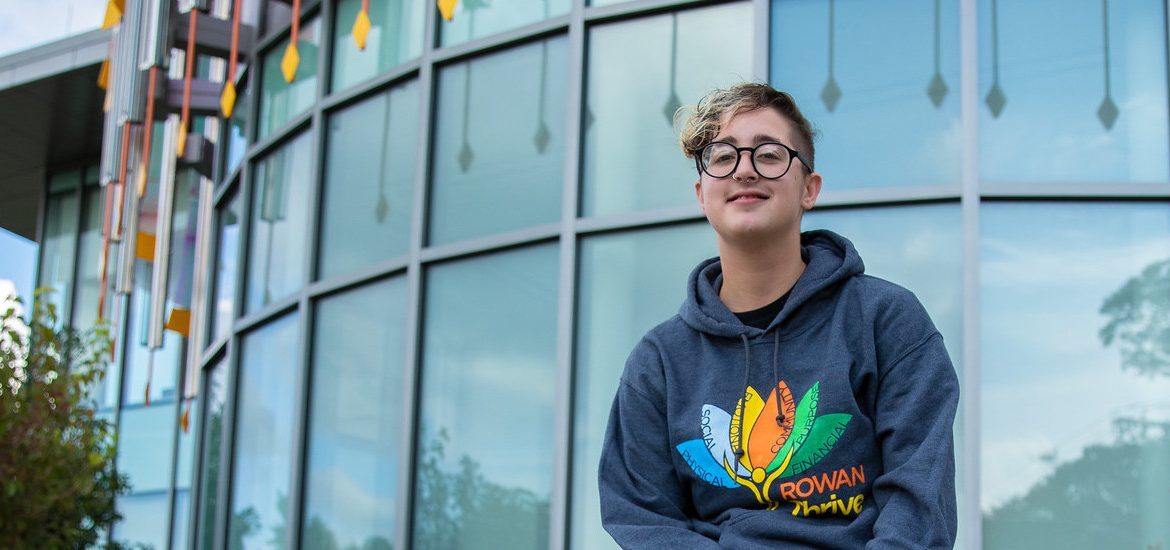Part of a series with Rowan University’s Wellness Center, this collaboration aims to educate students about personal well-being options. For further updates, follow @rowanuwellness on social. Written by Wellness Center intern Alexia Jovanovic-Foka, psychology major What Causes Stress In College Students College life is fun and exciting but it can also be stressful for many students. […]
mental health
How I Parent My College Student: SGA Mom Shares

Today we hear from Lori Bathurst, a Rowan mom from Gloucester County, NJ. Lori’s daughter Paige will enter her senior year this fall as a supply chain and logistics major through the Rohrer College of Business, and holds the distinction of being a past president of Student Government Association (SGA). As an experienced Rowan parent, […]
Overcoming Overthinking: Ways Students Can Cope

Part of a series with Rowan University’s Wellness Center, this collaboration aims to educate students about personal well-being options. For further updates, follow @rowanuwellness on social. Do you ever find yourself in a quiet setting trying to get some work done but there is just a little voice in your head saying a million things at […]
How to Build Healthy Friendships As a College Student

Part of a series with Rowan University’s Wellness Center, this collaboration aims to educate students about personal well-being options. For further updates, follow @rowanuwellness on social. Written by Wellness Center intern Kye Binik, law & justice studies major Friendships in adulthood can be difficult to navigate especially when it comes to recognizing a healthy friendship versus […]
From High School to Showbiz and Back Again: Rowan Alum Janine Edmonds Tells All on Her Career as a Guidance Counselor

Today we feature Janine Edmonds, a graduate of Rowan University’s class of 2001 with a degree in Radio/Television/Film and a 2006 graduate of Rowan’s M.A. In Counseling Educational Settings program. Here, Edmonds tells us about her path returning to higher education and her experience as a guidance counselor for Oakcrest High School. Did you always […]
Fadi Khan Talks About New Beginnings

Today we feature student leader Fadi Khan (he/him) of Pleasantville, NJ (Atlantic County). Fadi is a senior Biological Sciences major and lives on campus in Holly Pointe Commons, where he is also a Community Assistant. A first-generation college student, Fadi shares with us his perspectives on life, his major, and getting the most out of […]
The Power of Connecting with Others: Miral Rawy’s Story

Today we feature first-year student Miral Rawy, a Biomedical Engineering major who commutes to campus from Burlington County, NJ. Could you share a few on-campus activities, clubs, sports or events that you’ve attended so far? What was your favorite, and why? I have attended some RAHs [Rowan After Hours], which were a lot of fun, […]
Mental Health In Your First Year of College

Part of a series with Rowan University’s Wellness Center, this collaboration aims to educate students about personal well-being options. For further updates, follow @rowanuwellness on social. Written by Wellness Center intern Summer Slusarski, psychological sciences major The first year of college is both exciting and terrifying. You are moving away from home, gaining a sense of […]
Managing Stress as a College Student

This article is part of a running series with Rowan University’s Wellness Center. This collaboration aims to educate students about personal well-being options. For further updates, follow @RowanUWellness on Twitter, Instagram or Facebook. College is a tumultuous period of transition. Many students go from living at home with their parents to the newfound freedom of living alone. […]
How Nature Can Improve Your Mental Health

This article is part of a running series with Rowan University’s Wellness Center. This collaboration aims to educate students about personal well-being options. For further updates, follow @rowanuwellness on social. Written by Wellness Center intern Robert Zoroiwchak, psychology major In the bustling modern world, time is always short, and the never ending stress is always piling on. […]
Life with a Hint of Compassion

This article is part of a running series with Rowan University’s Wellness Center. This collaboration aims to educate students about personal well-being options. For further updates, follow @RowanUWellness on Twitter, Instagram or Facebook. Having compassion with oneself goes hand in hand with being compassionate with others quite often. According to self-compassion researcher Kristen Neff, “With […]

